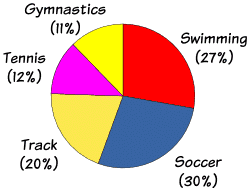Spanish Word of the Day
| December 26th, 2016 at 6:09:11 PM permalink | |
| Wizard Administrator Member since: Oct 23, 2012 Threads: 239 Posts: 6095 |
In the defense of the English language, a "horse" is a colt/mare/foal, but its not specified which one. At least there is a general term. I think Spanish should have a general term for just any owl. I don't see a problem with differentiating between "cow" and "beef." In the same way, you would order pescado in a restaurant, but a pez is the fish itself, while still living. Knowledge is Good -- Emil Faber |
| December 26th, 2016 at 8:00:58 PM permalink | |
| Pacomartin Member since: Oct 24, 2012 Threads: 1068 Posts: 12569 |
I thought that "búho" (Latin origin) is the general term. Am I confused? The word "lechuza" also comes from Latin, but lechuza apparently resulted from a cross between Old Spanish *nochuza and leche, due to the popular belief at the time that owls came at night to give babies milk. Tecolote is from an Aztec word, so we wouldn't expect it to be in all forms of Spanish, "Strigiformes" is the taxonomic form that includes all types of owls. |
| December 26th, 2016 at 8:16:25 PM permalink | |
| Wizard Administrator Member since: Oct 23, 2012 Threads: 239 Posts: 6095 |
One of us is, and probably me, but I think buho is only for owls that have what looks like horns or ears. Knowledge is Good -- Emil Faber |
| December 26th, 2016 at 8:27:25 PM permalink | |
| Pacomartin Member since: Oct 24, 2012 Threads: 1068 Posts: 12569 |
I am getting lazy. I should have looked it up in the DRAE before commenting. But it does say "ears" in the definition. búho : Del lat. vulg. bufo, y este del lat. bubo, -ōnis. m. Ave rapaz nocturna, indígena de España, de unos 40 cm de altura, de color mezclado de rojo y negro, calzada de plumas, con el pico corvo, los ojos grandes y colocados en la parte anterior de la cabeza, sobre la cual tiene unas plumas alzadas que parecen orejas. |
| December 27th, 2016 at 6:44:35 AM permalink | |
| Nareed Member since: Oct 24, 2012 Threads: 346 Posts: 12545 |
Because you've been doing it all your life.
You can bet your life's savings, all of Earths' money ten times over, and the GDP of the entire universe that I'd never do such a thing.
That distinction was never very useful to begin with and has lost in usage over the years. Donald Trump is a one-term LOSER |
| December 28th, 2016 at 8:36:22 PM permalink | |
| Wizard Administrator Member since: Oct 23, 2012 Threads: 239 Posts: 6095 |
Why not? I've ordered tacos de pescado in Ensenada and Tijuana lots of times and always seemed to be understood. On another topic, what would you call a pie chart in Mexico?  Knowledge is Good -- Emil Faber |
| December 29th, 2016 at 3:48:57 AM permalink | |
| Pacomartin Member since: Oct 24, 2012 Threads: 1068 Posts: 12569 |
Spanish primarily comes from one language, Latin! It has loan words from native languages in Latin America, and many from Arabic, and a few from Italian, German, and other European languages, but as a percentage their contribution is relatively small. English retains it's structure from the Germanic language "Old English" but that had possibly 25,000 vocabulary words. The bulk of the vocabulary in English comes from Old French. So "cow and pig" are from Old English, and "beef and pork" are from Old French. "Horse, colt, mare and foal" are all from Old English. |
| December 29th, 2016 at 6:39:56 AM permalink | |
| Nareed Member since: Oct 24, 2012 Threads: 346 Posts: 12545 |
You seem not to have noticed the I.
No clue. Donald Trump is a one-term LOSER |
| December 29th, 2016 at 6:43:56 AM permalink | |
| Nareed Member since: Oct 24, 2012 Threads: 346 Posts: 12545 |
I do wonder why there isn't a French substitute for "chicken." Fowl seems to include all edible birds (meaning chicken and turkey these days). Donald Trump is a one-term LOSER |
| December 29th, 2016 at 8:36:03 AM permalink | |
| Wizard Administrator Member since: Oct 23, 2012 Threads: 239 Posts: 6095 |
I'll have to use Google Translate then, which says Gráfico circular. Knowledge is Good -- Emil Faber |

